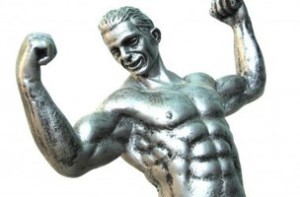 A lot of pressure is put on boys in our society to develop and exhibit characteristics and behavior that many view as typical masculine traits. Many people would give as examples of such traits toughness, perseverance, determination and confidence. Boys are told to “man up” or “be a man” when faced with confrontation or just everyday situations.
A lot of pressure is put on boys in our society to develop and exhibit characteristics and behavior that many view as typical masculine traits. Many people would give as examples of such traits toughness, perseverance, determination and confidence. Boys are told to “man up” or “be a man” when faced with confrontation or just everyday situations.
Nowhere is this more evident than in the world of sports, where winning is the goal and it takes a hundred and ten percent – or more – to realize it. And football seems to rank above all other sports in the perceived toughness factor.
Football in America is not just popular, it’s practically a religion. It seems to have displaced baseball as America’s pastime. From the pros, to college and high school and on down to the pee-wee ranks, football is celebrated in our culture as a community gathering event and elevated in importance above all other forms of sport competition.
It’s becoming increasingly evident, though, that the brutality and physical violence inherent in the game has detrimental long-term health effects beyond the obvious broken bones and concussions. The vast majority of former pro players display symptoms of traumatic brain injury. Even the Centers for Disease Control recognizes the concussion epidemic in football and has issued a poster warning NFL players of the risks.
A story on NPR’s All Things Considered this past weekend highlighted the brutality inherent in football including three high school players who died from their injuries during this September alone. The story featured a conversation with two players about the rigors of the game and tried to solicit some ways to make the game safer, without much luck. One of the players, former Denver Broncos tight end Nate Jackson, told show host Michel Martin:
We believe that football is a very, very important event, and that’s why we’ll sacrifice our lives for it. It’s a proving ground for manhood. And everybody in your community, wherever you are in America, and every high school — they rally around the football team, and it’s the central point of all the energy and the school pride, and so there’s so much momentum around it. I don’t know how you pull that back, because the NFL is a hype machine, you know. So they’re selling this product, and it trickles down. And all the kids watch it, and they want to be there, too.
Jackson, author of Slow Getting Up: A Story of NFL Survival from the Bottom of the Pile, is critical of the culture surrounding the game. It’s not just the players, but everyone else, from the people who mow the lawn to the professors who let players pass classes when they didn’t deserve it, who enable the culture and allow it to grow and proliferate.
It’s not only injuries that plague the sport. Behavior has gotten out of hand as well. Police investigated an incident in football-crazy Texas where two players actually blindsided and tackled a referee over what the players say they thought were bad calls and racial slurs from the officials. There’s even a report that the coaches told the players that the referee in question had to “pay for cheating us”.
Is this what football, and sport in general, is teaching our young men?
Is that “manhood”? Being able to catch a ball and knock other guys down? To suffer debilitating injuries and put up with it? To disrespect authority?
Former Minnesota Vikings punter Chris Kluwe observed:
Football is this mingling of so many different socioeconomic backgrounds and types of people that it’s kind of this cross-section of America as a whole… It’s a melting pot, in which beliefs of every dimension converge on a single point.
I think Kluwe’s observation is very close to another, very different, much less violent, proving ground for manhood: Scouting.
Consider how Scouting prepares boys for manhood. It teaches them to work together as a team for the common good, to take care of themselves in practical ways, to relate to adults in a respectful manner, to be kind to other people and the world around them, to have the courage to do the right thing, and to always be helpful. To actually practice leadership – being responsible for the welfare and success of a patrol, not token leadership where someone else calls the plays. And yes, to be physically strong as well – but not to use that physical strength against others.
As a counselor for the Family Life merit badge, I have had dozens of conversations with young men about their image of manhood and their role as a father in the family. I find that our Scouts have a pretty good idea of what manhood is all about. It’s not about who can run the fastest or hit the hardest, but who can be strong with kindness and compassion, helpfulness and patience, generosity and graciousness.
Scouting is mercifully free of the “win at all costs” mentality as well. The pressure to outdo the other guys just isn’t there. Each Scout competes only with himself. Sure, there may be friendly competitions – who doesn’t like a good game of Capture the Flag? – but the outcome doesn’t determine the success of the team’s performance. And in contrast to Kluwe’s illustration of convergence on a single point, we have twelve.
Which “proving ground for manhood” would you rather your son experience?
This post first appeared on Bobwhite Blather.


